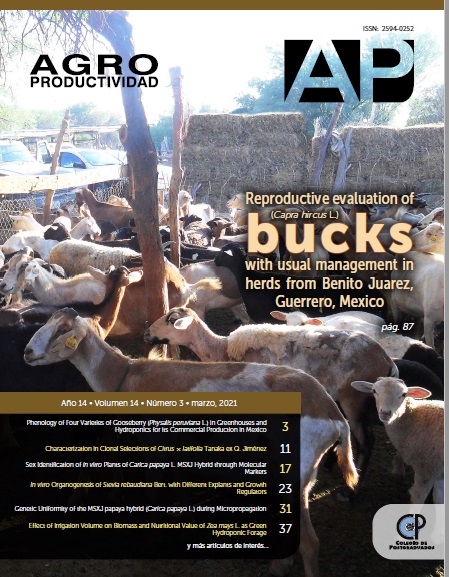In vitro Organogenesis of Stevia rebaudiana Bert. with Different Explants and Growth Regulators
Main Article Content
Keywords
Estevia, Micropropagation, Brassinosteroid
Abstract
Objective: To evaluate various explants and growth regulators to improve the in vitro propagation of Stevia rebaudiana via organogenesis.
Design / methodology / approach: Explants and growth regulators were evaluated at two concentrations. The explants were, nodal segment, axillary bud and apical meristem and the growth regulators Benzylaminopurine (BAP) 1,125 mgL-1 and 3.0 mgL-1, Naphthaleneacetic Acid (ANA) 1.5 mgL-1 and 3.0 mgL-1, and a Brassinosteroid CIDEF -4 (Br) 1.0 mgL-1 and 1.5 mgL-1. In total 18 treatments with 7 repetitions. In the induction, contamination, oxidation and survival were registered and in multiplication, number of leaves, height of regrowth and presence of roots.
Results: Differential response between explants was presented according to ontogenetic age in the induction and multiplication stage, the morphological components presented differences between the concentrations of growth regulators and explants with greater effectiveness when adding BAP in apical meristem.
Study limitations / implications: The origin and age of the explants can induce differential growth in interaction with growth regulators.
Findings / conclusions: The apical meristem explant has better advantages for the in vitro reproduction of Stevia rebaudiana by expressing less contamination and greater survival in the induction stage, even when it presented the highest oxidation of the explants, it did not influence the decrease in the survival of the same explants. Likewise, in the multiplication stage with apical meristem, the height, the number of leaves and the presence of roots increased. The values ??were more outstanding in interaction with BAP

